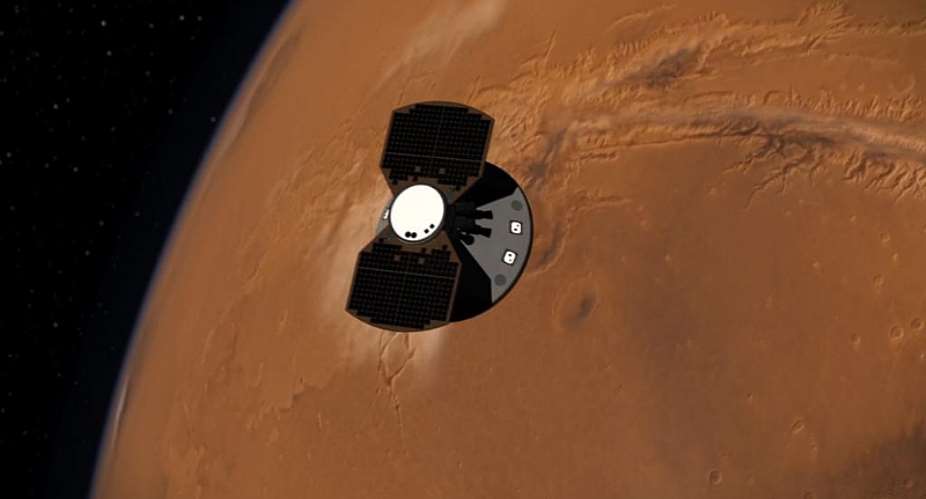2018 saw France host a landmark event in the history of science. From redefining the kilogram, to Nobel-winning advances in laser technology. And getting a feel for Martian vibrations, as scientists land a seismometer on the red planet.
On 16 November in Versailles, the General Conference on Weights and Measures adopted a resolution to update the definitions of the International System of units based on fundamental constants of nature. This means that the kilogram, whose standard was a platinum iridium cylinder stored in a vault near Paris, will from now on be defined by Planck's Constant.
The year also saw a French scientist winning a Nobel Prize. Professor Gerard Mourou of Ecole Polytechnique won this year's Prize in Physics (along with Professor Arthur Ashkin and Professor Donna Strickland) for developing a special laser technique with important applications in the fields of industrial machining, ophthalmology and particle physics.
French scientists are also playing important roles in two space missions that were launched this year.
First, a magnetometer developed by researchers from the University of Orléans, which is a part of the Parker Solar Probe (launched in August) that aims to study the nature of the Sun's atmosphere.
And Philippe Lognonné, of the Institut de Physique du Globe de Paris, who is the principal investigator of the seismometer instrument that will measure vibrations on Mars.
The seismometer, part of the InSight mission that landed on Mars on 26 November, could reveal what lies beneath the Martian surface.





 Former Kotoko Player George Asare elected SRC President at PUG Law Faculty
Former Kotoko Player George Asare elected SRC President at PUG Law Faculty
 2024 elections: Consider ‘dumsor’ when casting your votes; NPP deserves less — P...
2024 elections: Consider ‘dumsor’ when casting your votes; NPP deserves less — P...
 You have no grounds to call Mahama incompetent; you’ve failed — Prof. Marfo blas...
You have no grounds to call Mahama incompetent; you’ve failed — Prof. Marfo blas...
 2024 elections: NPP creates better policies for people like us; we’ll vote for B...
2024 elections: NPP creates better policies for people like us; we’ll vote for B...
 Don’t exchange your life for wealth; a sparkle of fire can be your end — Gender ...
Don’t exchange your life for wealth; a sparkle of fire can be your end — Gender ...
 Ghana’s newly installed Poland train reportedly involved in accident while on a ...
Ghana’s newly installed Poland train reportedly involved in accident while on a ...
 Chieftaincy disputes: Government imposes 4pm to 7am curfew on Sampa township
Chieftaincy disputes: Government imposes 4pm to 7am curfew on Sampa township
 Franklin Cudjoe fumes at unaccountable wasteful executive living large at the ex...
Franklin Cudjoe fumes at unaccountable wasteful executive living large at the ex...
 I'll 'stoop too low' for votes; I'm never moved by your propaganda — Oquaye Jnr ...
I'll 'stoop too low' for votes; I'm never moved by your propaganda — Oquaye Jnr ...
 Kumasi Thermal Plant commissioning: I pray God opens the eyes of leaders who don...
Kumasi Thermal Plant commissioning: I pray God opens the eyes of leaders who don...
